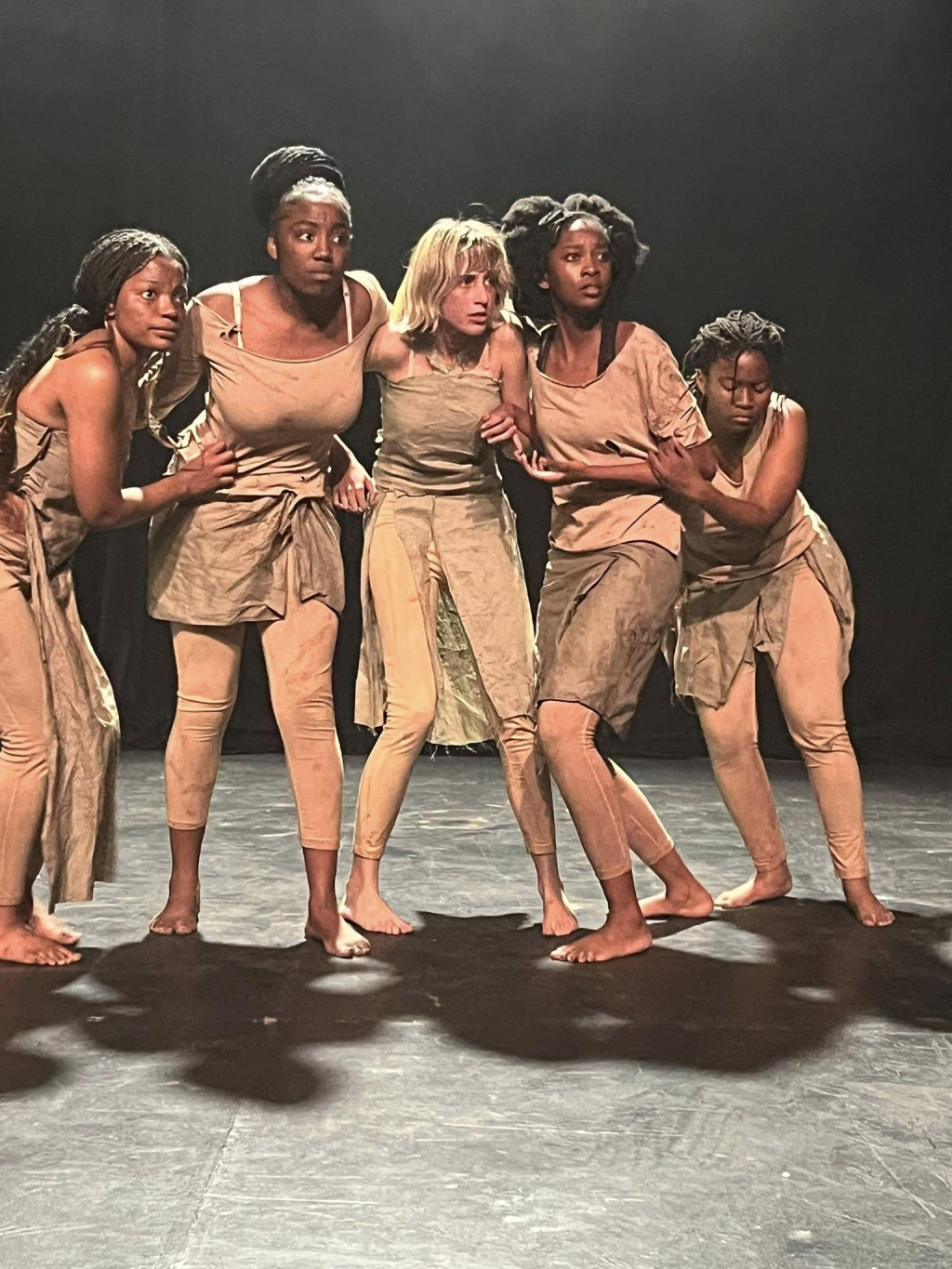The success of our students at this year's Festival of Excellence in Dramatic Arts tells a story that goes beyond individual achievements. It speaks to what happens when we truly trust young people with creative ownership.
The St John's Sixth Form play, The Story of Herself, reached the FEDA Finals on Sunday, 1 June. Adapted and directed by Freya De Beer and Demi-Lee Botha, this production not only entertained audiences, it demonstrated the kind of original thinking that emerges when students are given real creative control. In today's rapidly shifting creative landscape, this matters more than we might initially realise.
Boyhood, our College production, took a different but equally valuable path. While it didn't reach the finals, being recognised among the top 16 plays of the season represents something significant about educational risk-taking. Elliot Cross and co-writer Siza Gule created work that explored identity and transformation through bold artistic choices, exactly the kind of experimental thinking that industries desperately need but often struggle to cultivate.
The nominations themselves tell an interesting story. The Story of Herself earned four nominations: Best Director for Freya De Beer and Demi-Lee Botha, Best Actress for Morongoa Monale, Best Sound Design for Demi-Lee Botha, and Best Production Design and Technical Achievement. Boyhood received five nominations spanning Best Director , Elliot Cross; Best Actor, Siza Gule for his portrayal of Themba; Best Chorus and Best New Writing , Elliot Cross and Siza Gule; and, Most Cutting Edge.
But what's particularly striking is that both productions won awards that recognise precisely the qualities we should be fostering in creative education. The Story of Herself took home Best Production Design and Technical Achievement in acknowledgement of Demi-Lee Botha's remarkable range as both director and sound designer. Boyhood won Most Cutting Edge, celebrating Elliot and Siza's willingness to push boundaries.
These wins matter because they highlight something we've learned about creative development: when students write their own material, direct their own visions, and take genuine artistic risks, they develop not just technical skills. They build the kind of critical thinking, collaboration abilities, and leadership capacity that actually drive cultural innovation.
The creative industries are hungry for this kind of thinking. Yet too often, educational theatre plays it safe, sticking to established texts and conventional approaches. What all the students involved in both productions have shown is that when given real creative responsibility, they can handle it ... and thrive with it.
Their collective success reminds us why investing in student-driven creative expression isn't just nice to have, it's essential for developing the next generation of cultural leaders who can navigate and shape an increasingly complex creative landscape.


